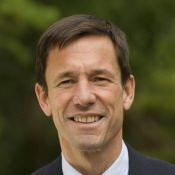 The keynote address of the social capital markets conference called SoCap was given today by Sonal Shah from the White House Office of Social Innovation and Civic Participation. For the past few years, more and more people have been focused on combining social benefit with entrepreneurism, and this is the year of three-way collaboration.
The keynote address of the social capital markets conference called SoCap was given today by Sonal Shah from the White House Office of Social Innovation and Civic Participation. For the past few years, more and more people have been focused on combining social benefit with entrepreneurism, and this is the year of three-way collaboration.
Shah coordinates the domestic policy agenda to help government support both social entrepreneurs and nonprofit organizations. She says the government has the ability to drive resources toward the most innovative solutions. There will be funds such as to support nonprofit organizations grow promising programs and help them spread across the country, but Shah emphasized the government’s goal to catalyze multi-sector partnerships addressing issues in education, health care and environment.
An example she gave was that Cisco is participating in workforce retraining initiatives, helping to develop a community college curriculum in health IT.
The keynote was followed by a panel about social innovation and our current administration, consisting of Shah, Vanessa Kirsch or New Profit Inc., Carla Javits of REDF, and Andrew Wolk of Root Cause along with moderator jeff Bradach of the Bridgespan Group. Discussing the pro’s and con’s of inserting a government bureaucracy into social innovation, the panel seemed in agreement around something Wolk summed up by saying, “Government has access to all of the issues we are trying to address.”
But Javits emphasized the role social investors need to play in telling the administration what the private sector needs. Shah agreeed, emphasizing that her small office can not do all of the research from scratch that will lead to new captial models. And to leverage their limited resources, they need to choose carefully among all of the possible initiatives they can get involved with. She wants to identify what government can do well and not just what needs to be done.
Shah also said that success will be “innovations happening at the state and local level” where government agencies are in contact with schools and cities that have unique needs. So, maybe that is the area in which the Obama administration can realistically expect success–being a role model throughout the country and beyond.








